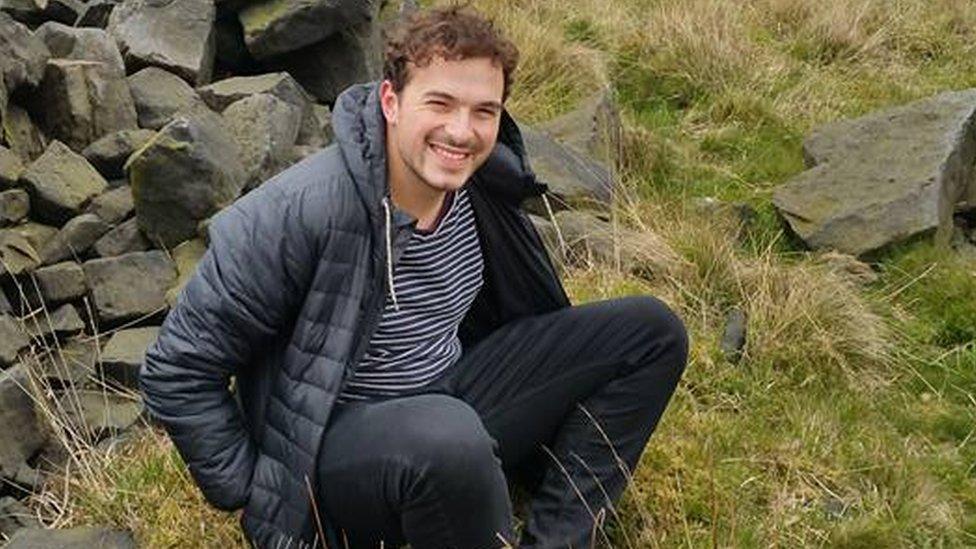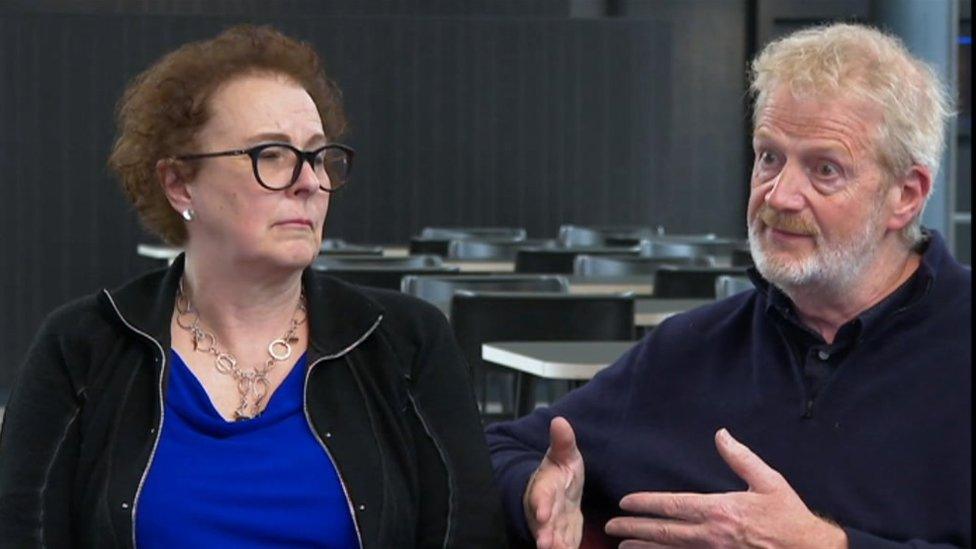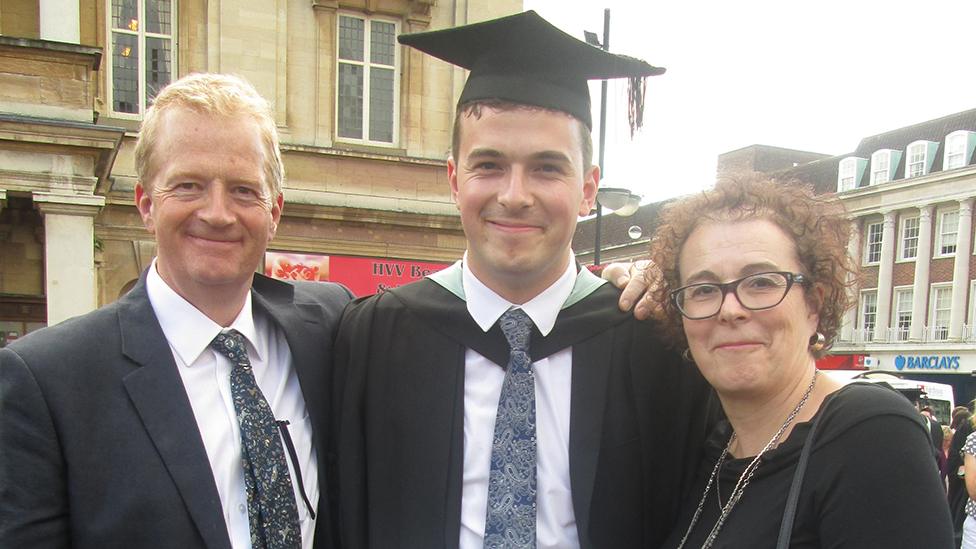Jack Ritchie death: Gambling addictive as heroin, addict's parents say
- Published

Jack Ritchie took his own life in Vietnam in 2017 after years of gambling addiction
The parents of a gambling addict who took his own life say the dangers of betting should be treated like those of smoking.
Jack Ritchie, 24, who became hooked on fixed-odds terminals in his teens, died while working in Vietnam.
Mum Liz and dad Charles want stronger messaging about problem gambling after an inquest found Jack was failed by "woefully inadequate" warnings.
The government said it was working on a comprehensive update of betting laws.
An inquest in March heard Jack, from Sheffield, had spent years battling his addiction, but died while working as a teacher in Hanoi in November 2017.
The coroner in the case sent a list of recommended actions to the government after he concluded that the Hull University graduate had been failed by "woefully inadequate" warnings and treatments.
'Flawed system'
Jack's father told BBC Breakfast that his son had thought gambling was just a "bit of fun" as a teenager before it spiralled into an addiction.
"That was the only messaging there was about gambling. Nothing about the impact on mental health, nothing around suicide," he said.
"What you have are some incredibly addictive products - as addictive as heroin - and what we are expecting is that people will somehow know that."
Gambling addict help 'woefully inadequate'
Parents hope for gambling laws change
Mrs Ritchie said there was an assumption that addiction issues were "an individual's fault, that stopping the harm is down to the individual and that it is not part of the system".
"A five-year-old knows smoking kills. Who knows gambling kills?" she said.
Mr Ritchie said the "whole system was flawed" and when his son had sought help even medical professionals were unaware of the risks.

Liz and Charles Ritchie say the government has not recognised the scale of the problem
The Department for Digital, Culture, Media and Sport (DCMS) said Mr Ritchie's death was a "stark reminder" of the consequences of harmful gambling.
"We are committed to working with the NHS and stakeholders to ensure those experiencing gambling-related harms are able to access the quality treatment and support they need, when they need it," a spokesperson said.
The spokesperson added that the DCMS was "undertaking the most comprehensive review of gambling laws in 15 years to make sure they are fit for the digital age" and a white paper would be published shortly.
However, Mr Ritchie said he believed the government had not grasped the scale of the problem and its response was "inadequate".
It had failed to "recognise that many more people will die as long as safety warnings and treatment available keep on following industry-friendly messaging", he said.
"We worry that they will tinker around the edges."
Mrs Ritchie added: "The government seems to be saying here that this system, the one that killed our son, will continue."

Charles and Liz Ritchie set up the Gambling with Lives charity following the death of their son in November 2017
Mr and Mrs Ritchie have campaigned for reform through their charity Gambling with Lives and want gambling companies to pay a statutory levy on profits to be invested in support services.
Under the current system charities are voluntarily funded by the industry.
That would mean "the government can direct it into the state organisations used to delivering treatment and education", Mrs Ritchie said.
Mr Ritchie said they would also like to see a ban on advertising and the introduction of affordability checks.
The Betting and Gaming Council said 30 million people in the UK "enjoy a bet each year and the overwhelming majority do so safely".
It said its largest members had committed to spend an additional £100m between 2019 and 2023 for the treatment of problem gambling, "including treatment for a minority of those who are suffering from serious addiction".
The council added it strongly supported the government's gambling review.

Follow BBC Yorkshire on Facebook, external, Twitter, external and Instagram, external. Send your story ideas to yorkslincs.news@bbc.co.uk, external.
- Published4 March 2022

- Published23 February 2022

- Published21 February 2022

- Published28 August 2019

- Published24 October 2018
